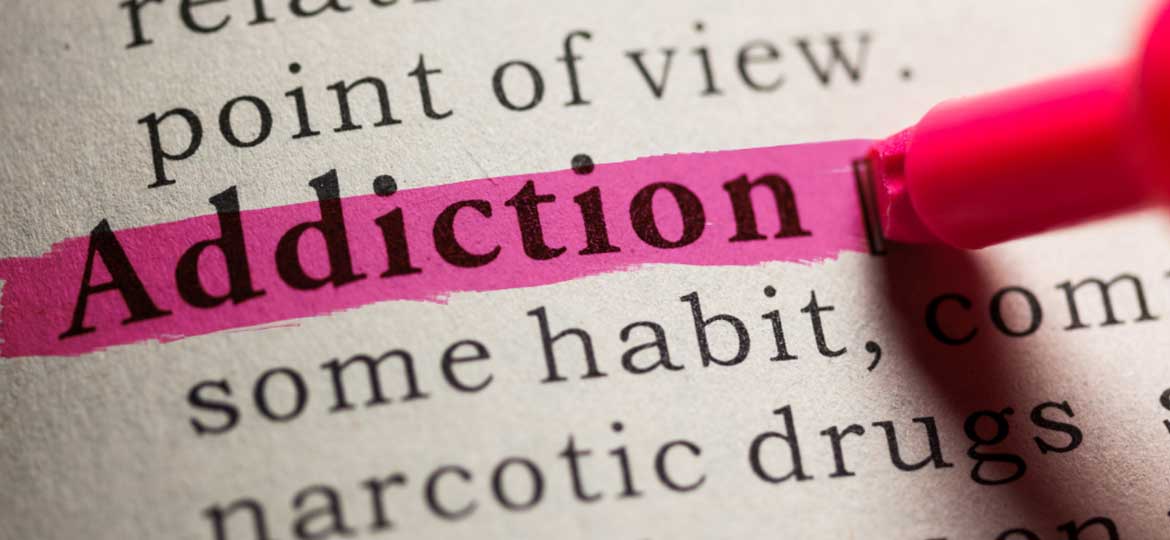Calgary Addiction Counseling and Substance Use Therapy

Research proves that professional addiction counseling doubles your chances of staying clean long-term compared to going it alone. Many people who struggle with addiction still avoid getting professional help because they doubt treatment works.
Professional counselors blend proven therapeutic approaches with tailored support. Their methods target both physical dependency and psychological aspects. These evidence-based techniques help patients understand addiction’s root causes while building practical strategies that stick.
This piece dives into the most effective and research-backed approaches used in modern addiction therapy. Readers will find how behavioral modification techniques and trauma-informed care help people beat different types of addiction. Recent tech advances have also boosted traditional counseling through digital tools that make remote treatment possible.
Our Calgary Therapists Providing Addictions Counselling and Substance Use Therapy
Jarret Verwimp
Clinical Canadian Certified Counsellor
English, French, Spanish (basic)
Dr. Raheleh Tarani
Registered Provisional Psychologist
English, Farsi, Japanese (basic), Hindi, Turkish, Punjabi, Urdu
Andrea Krygier
Registered Psychologist
English, Spanish
Murray Molohon
Registered Psychologist
English
Scientific Foundations of Addiction Recovery

Science has proven that addiction is a treatable medical condition, not a personal failure [1]. Our understanding has led us to develop evidence-based approaches that target both biological and psychological aspects of dependency.
Research-backed treatment models
Scientific research shows that 40-60% of addiction susceptibility comes from genetic factors [1]. Modern addiction counseling uses multiple evidence-based treatment models:
- Cognitive Behavioral Therapy (CBT): Addresses maladaptive behaviors and thought patterns
- Motivational Enhancement Therapy (MET): Builds internal motivation for change
- Contingency Management (CM): Uses positive reinforcement for behavioral change
- Family Behavior Therapy (FBT): Integrates family support systems
Evidence hierarchy in addiction treatment
Rigorous scientific frameworks help us review the effectiveness of addiction therapies. Treatment must show efficacy through randomized controlled trials or extensive single-case experiments [2]. Two independent research teams must confirm these results to achieve the highest level of evidence-based classification.
Integration of clinical experience
Research shows that combining medical services with addiction counseling substantially improves treatment outcomes [3]. Modern addiction therapy programs now adopt integrated care models. Primary healthcare providers work among addiction specialists. Patients with physiologic or behavioral conditions related to substance use benefit especially from this approach [3].
Advances in neuroscience and clinical research continue to shape our understanding of addiction. Treatment programs now use customized approaches. They recognize how individual circumstances and biological factors influence recovery success [4]. This individualized method marks a transformation from traditional one-size-fits-all treatment models.
Clinical evidence supports combining multiple treatment approaches. Studies show better outcomes when behavioral therapies work together with appropriate medication management [5]. Group therapy and peer support have also showed lasting effectiveness in maintaining long-term recovery [5].
Behavioral Modification Techniques
Behavioral modification techniques are the life-blood of effective addiction counseling. Research shows they have a substantial effect on recovery outcomes. Studies show that contingency management interventions rank among the most effective treatments for stimulant use disorder [6].
Reinforcement strategies
Addiction therapists use several proven reinforcement methods to support recovery:
- Prize-based reinforcement: Provides tangible rewards for achieving specific recovery goals
- Voucher-based systems: Offers vouchers redeemable for goods and services
- Social reinforcement: Uses community support and relationship building
- Treatment attendance rewards: Encourages regular participation in therapy sessions
These reinforcement strategies have proven remarkably effective. Studies show that contingency management can increase treatment retention and abstinence rates by a lot [7].
Habit reformation methods
Habit reformation starts by understanding the three-component habit loop: cue, routine, and reward [8]. Addiction counselors help people identify their specific triggers and build new response patterns. Research shows that people with substance use disorders struggle most during empty time periods [9].
Behavioral couples therapy (BCT) shows the effectiveness of habit reformation through increased abstinence rates and better relationship functioning [10]. Successful habit change needs consistent repetition. Research shows that formation periods can range from several weeks to months [8].
Behavioral maintenance protocols
Systematic reinforcement and support systems drive long-term behavioral maintenance. The Community Reinforcement Approach (CRA) stands out as an effective protocol. It focuses on removing positive reinforcement for substance use while improving rewards for sobriety [11].
Therapists apply maintenance protocols through various channels:
- Regular monitoring and accountability systems
- Progressive skill development
- Environmental modification strategies
- Ongoing support network involvement
Research confirms these maintenance protocols create lasting results. Cognitive behavioral approaches show continued improvement even after treatment ends [12]. Combining behavioral maintenance protocols with other therapeutic approaches improves overall treatment effectiveness [10].
Psychological Intervention Methods
Psychological intervention methods in addiction counseling highlight the complex connection between mental health and recovery. Research shows that trauma-informed approaches and emotional regulation techniques are the foundations of effective addiction therapy.
Trauma-informed approaches
Trauma-informed addiction counseling acknowledges that most people with substance use disorders have experienced trauma. This approach creates a treatment environment that prioritizes physical and emotional safety. Trauma survivors get more choice and control in their recovery trip [13].
These principles guide trauma-informed addiction therapy:
- Understanding how trauma affects people
- Creating safe physical and emotional spaces
- Building trust in therapeutic relationships
- Making collaboration and connection possible
- Building skills and resilience
Emotional regulation techniques
Emotional regulation plays a crucial role in addiction recovery. Research reveals that people with substance use disorders show higher levels of negative emotionality [14]. Successful emotional regulation therapy uses multiple components to help people manage their emotional responses better.
The therapy follows these steps:
- Accurate emotion identification and labeling
- Mindfulness-based awareness development
- Practical coping strategy implementation
- Emotional resilience building
- Stress management practice
Identity reconstruction work
Identity transformation emerges as a vital part of substance use recovery [15]. The social identity model of recovery suggests that successful treatment depends on changes in both self-identity and social identity [15].
Treatment brings identity changes through two distinct paths. Some people renew their valued pre-addiction identities. Others build new aspirational identities through study, work, or family roles [16].
Identity reconstruction happens through positive social connections and purpose-finding. Treatment centers have seen success when they offer meaningful roles within the recovery community [16].
Recovery capital – the social, cultural, physical, and human resources available – shapes identity reconstruction [15]. Counselors help people build these resources as they develop new identities that match their recovery goals.
Technology-Enhanced Treatment Approaches
Technology plays a vital role in addiction treatment today. It makes treatment more accessible and improves traditional counseling methods. Digital therapeutics and remote treatment options create new ways to support recovery.
Digital therapeutic tools
The Therapeutic Education System (TES), a web-based psychosocial skills training intervention, shows remarkable results in addiction treatment. Studies reveal that TES produced drug abstinence rates equivalent to therapy from highly trained clinicians [17]. Patients who used TES with standard treatment stayed in therapy longer and maintained drug abstinence better [18].
Digital therapeutic tools are great because they:
- Provide support whenever you need it
- Use standard assessment methods
- Give better privacy and anonymity
- Offer affordable treatment options
- Create tailored treatment plans
FDA-authorized prescription digital therapeutics like reSET now deliver evidence-based neurobehavioral therapy through interactive modules. These platforms include 67 sequential modules with audio, text, and video content that let patients learn at their own speed [19].
Remote counseling effectiveness
Telehealth services open new doors for addiction counseling access. Today, more than 50% of patients get intensive outpatient treatment, individual counseling, and group counseling through telehealth platforms [20].
Studies show telehealth-delivered substance use disorder treatment works just as well as in-person treatment [20]. Healthcare providers say remote individual counseling matches the results of face-to-face sessions while making it easier for patients to get help.
AI-assisted interventions
AI brings fresh approaches to addiction treatment through:
- Predictive analytics that spot risk patterns
- Live geographical monitoring for trigger alerts
- Virtual counselors ready to help right away
- Custom treatment plan creation
- Progress tracking with early warning systems
AI-powered chatbots deliver promising results in substance use interventions. Success rates reach 84.6% for alcohol use and 85% for methamphetamine use [21]. These tools help people quit smoking too, with success rates of 79.55% compared to 73.35% in control groups [21].
Machine learning algorithms process huge amounts of behavioral data to fine-tune treatments [5]. Healthcare providers get alerts about possible crises and can adjust their strategies based on how patients respond in real-time.
Smartphones and wearable devices with AI monitoring create new ways to support patients continuously. These tools track behavior patterns, spot potential relapse triggers, and step in to help when needed [5].
Family Systems and Social Support
Research shows that strong family relationships predict success in addiction recovery. Studies reveal that family unity protects against substance abuse relapse [22].
Family therapy integration
Addiction counseling with family-based treatments helps change interactions that lead to substance misuse. Family therapy works – studies show that family participation leads to better treatment retention rates [23].
Current evidence-based family therapy approaches include:
- Behavioral Couples Therapy (BCT)
- Family Behavior Therapy (FBT)
- Brief Strategic Family Therapy (BSFT)
- Multi-dimensional Family Therapy (MDFT)
- Community Reinforcement and Family Training (CRAFT)
CRAFT has shown excellent results and helps more youth and adults join substance use disorder programs [24].
Community support networks
Social connections and support lead to less substance use and better mental health [22]. Professional treatment paired with community support gives people vital resources to handle addiction’s emotional and practical challenges.
People who join peer support groups see several benefits [2]:
- Less shame and isolation
- Better coping skills
- Knowing how to spot triggers
- Lower cravings
- Recognition of sobriety achievements
These support networks combine with traditional therapy to create a detailed recovery environment. People get round-the-clock support from others who know their struggles firsthand.
Relationship repair strategies
Relationship repair plays a key role in long-term recovery success. Research shows that addiction affects every family member’s health and well-being [23].
Rebuilding trust needs a well-laid-out approach that focuses on:
- Creating open communication
- Setting healthy boundaries
- Building accountability systems
- Making safe spaces to express emotions
- Encouraging mutual understanding
Studies highlight that supportive family connections provide social recovery resources [24]. Good family relationships can also open doors to more recovery support options and improve treatment results [24].
Modern addiction counseling programs include family-focused treatments at every stage. These programs offer family therapy sessions, educational workshops, and support groups [25]. This integrated family approach leads to better outcomes than individual treatment alone [23].
Practical Application and Case Management
Case management is the foundation of successful addiction counseling programs. Research shows that 83% of treatment facilities now include case management services [3]. This complete approach will give a coordinated care delivery across multiple health and support services.
Treatment coordination
Case management significantly improves treatment outcomes by helping clients participate in recovery programs [26]. The process starts with a complete screening to identify medical, psychosocial, behavioral, and functional needs. All care team members must contribute to and endorse the patient’s treatment plan to achieve successful treatment coordination [26].
A coordinated approach targets:
- Addressing urgent tangible needs like housing and food
- Integrating formal and informal care services
- Overcoming barriers to treatment access
- Managing transitions between different levels of care
Crisis intervention protocols
Crisis intervention is a crucial part of addiction counseling that requires rapid response to manage acute situations. Research indicates that approximately 70% of crisis team participation results in successful community stabilization [27].
The crisis intervention process follows these crucial steps:
- Immediate safety assessment and risk evaluation
- De-escalation techniques implementation
- Family or support system participation
- Short-term action plan development
- Connection to appropriate resources
Crisis intervention services have proven effective at reducing psychiatric hospitalizations and emergency department visits. These protocols help people receive appropriate care in environments where they feel comfortable, avoiding unnecessary law enforcement involvement [27].
Aftercare planning methods
Aftercare planning starts the moment an individual enters treatment [3]. Studies show that people who maintain sobriety often credit their success to participation in complete aftercare services [3].
Key components of effective aftercare include:
- Regular therapy sessions and counseling
- Peer support group participation
- Medication management when necessary
- Ongoing progress monitoring
- Crisis prevention strategies
Research verifies that proper aftercare planning must address several key areas [3]:
- Understanding condition severity
- Identifying potential treatment barriers
- Setting outpatient care expectations
- Establishing appointment schedules
- Creating sustainable self-management plans
- Developing trigger response protocols
- Implementing symptom recurrence strategies
Sober living homes are vital to aftercare. They provide structured environments where people can practice coping skills in substance-free settings. These facilities have strict rules, including mandatory house meetings, regular drug screening, and participation in household responsibilities [3].
The shift from rehabilitation back to community life is one of the most vulnerable periods in recovery [3]. So, aftercare planning helps individuals:
- Make informed lifestyle choices
- Strengthen coping mechanisms
- Recognize and avoid triggers
- Minimize potential setbacks
- Access supportive networks
Treatment professionals start developing aftercare strategies early in the rehabilitation process. They identify necessary tools and skills for post-program success. This proactive approach ensures that individuals can access required resources before completing their original treatment phase [3].
Alumni organizations have evolved from optional additions to integral components of complete aftercare planning. These organizations maintain ongoing connections to treatment teams and promote supportive relationships developed during rehabilitation [3].
Case managers become especially valuable during discharge and aftercare phases. They serve as primary allies throughout the recovery trip. Their role includes coordinating care aspects, ensuring smooth transitions between services, and maintaining consistent support for individuals in recovery [3].
Conclusion
Addiction counseling has grown into a sophisticated field that combines scientific research with proven methods. Modern treatments like CBT, trauma-informed care, and behavioral modification techniques give you access to detailed recovery support systems. These systems tackle both the mental and physical aspects of addiction.
New technology improves traditional treatments and offers digital therapy tools and remote counseling. These options make help more accessible without losing their impact. Strong family involvement and social support networks are vital parts that create the right environment for lasting recovery.
Studies show that successful addiction treatment needs individual-specific approaches that blend multiple therapy elements. Professional addiction counselors now use integrated case management strategies. This ensures care coordination between support services while focusing on long-term recovery through well-laid-out aftercare plans.
These developments in addiction counseling, backed by science and real-world experience, bring hope to people seeking recovery. Treatment programs keep getting better as they add new research findings and technological innovations. This makes sustainable recovery an achievable goal for anyone who seeks professional help.
FAQs
Q1. What are the most effective evidence-based methods for addiction treatment?
Cognitive Behavioral Therapy (CBT), Motivational Enhancement Therapy (MET), and Contingency Management (CM) are among the most effective evidence-based methods. These approaches address maladaptive behaviors, build motivation for change, and use positive reinforcement to support recovery.
Q2. How does technology enhance addiction counseling?
Technology enhances addiction counseling through digital therapeutic tools, remote counseling options, and AI-assisted interventions. These innovations provide 24/7 support, standardized assessments, and personalized treatment plans, making therapy more accessible and effective.
Q3. What role does family play in addiction recovery?
Family plays a crucial role in addiction recovery. Family therapy integration, such as Behavioral Couples Therapy and Community Reinforcement and Family Training (CRAFT), has shown to improve treatment retention rates and overall recovery outcomes by modifying interactions that contribute to substance misuse.
Q4. How important is aftercare in maintaining long-term recovery?
Aftercare is vital for maintaining long-term recovery. Effective aftercare planning includes regular therapy sessions, peer support group participation, medication management when necessary, and ongoing progress monitoring. It helps individuals practice coping skills and navigate potential triggers in their daily lives.
Q5. Can addiction counseling be effective through remote or online platforms?
Yes, remote or online addiction counseling can be effective. Research indicates that telehealth-delivered substance use disorder treatment matches the effectiveness of in-person treatment across multiple metrics. It offers comparable results while providing enhanced convenience and reduced barriers to access.
References
[1] – https://www.shatterproof.org/learn/addiction-basics/science-of-addiction
[2] – https://www.helpguide.org/mental-health/addiction/na-and-peer-support-groups-for-drug-addiction
[3] – https://www.therecoveryvillage.com/treatment-program/aftercare/
[4] – https://ccaps.umn.edu/story/how-advances-addiction-treatment-and-counseling-are-improving-outcomes
[5] – https://pmc.ncbi.nlm.nih.gov/articles/PMC11572328/
[6] – https://aspe.hhs.gov/sites/default/files/documents/72bda5309911c29cd1ba3202c9ee0e03/contingency-management-sub-treatment.pdf
[7] – https://www.ruralhealthinfo.org/toolkits/substance-abuse/2/treatment/behavioral-therapy
[8] – https://www.affecttherapeutics.com/building-healthy-habits-to-replace-drinking-and-drug-habits/
[9] – https://pmc.ncbi.nlm.nih.gov/articles/PMC9926005/
[10] – https://pmc.ncbi.nlm.nih.gov/articles/PMC3678283/
[11] – https://pmc.ncbi.nlm.nih.gov/articles/PMC6760430/
[12] – https://pmc.ncbi.nlm.nih.gov/articles/PMC3633201/
[13] – https://www.ccsa.ca/sites/default/files/2019-04/CCSA-Trauma-informed-Care-Toolkit-2014-en.pdf
[14] – https://pmc.ncbi.nlm.nih.gov/articles/PMC10087816/
[15] – https://pmc.ncbi.nlm.nih.gov/articles/PMC8823084/
[16] – https://pmc.ncbi.nlm.nih.gov/articles/PMC4663247/
[17] – https://pmc.ncbi.nlm.nih.gov/articles/PMC3650640/
[18] – https://pmc.ncbi.nlm.nih.gov/articles/PMC7134325/
[19] – https://www.psychiatrictimes.com/view/digital-therapeutics-for-substance-use-disorders-from-research-to-practice
[20] – https://psychiatryonline.org/doi/full/10.1176/appi.ps.202100088
[21] – https://www.frontiersin.org/journals/psychiatry/articles/10.3389/fpsyt.2024.1456689/full
[22] – https://ascpjournal.biomedcentral.com/articles/10.1186/s13722-021-00252-8
[23] – https://americanaddictioncenters.org/therapy-treatment/family-therapy
[24] – https://pmc.ncbi.nlm.nih.gov/articles/PMC8380649/
[25] – https://store.samhsa.gov/sites/default/files/tip-39-treatment-family-therapy-pep20-02-02-012.pdf
[26] – https://store.samhsa.gov/sites/default/files/PEP20-02-02-013.pdf
[27] – https://www.samhsa.gov/sites/default/files/national-guidelines-for-behavioral-health-crisis-care-02242020.pdf






